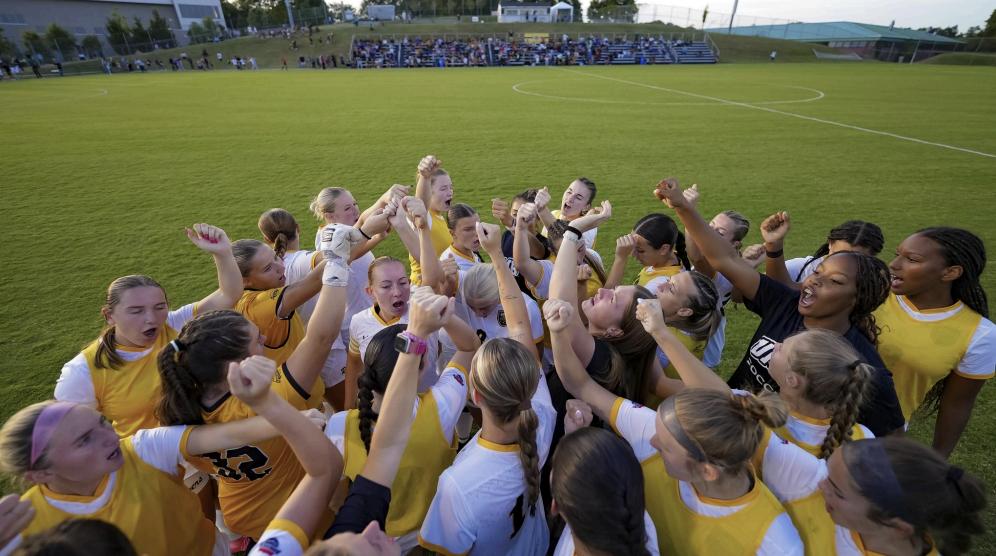Manning a sailboat is no easy feat, but Nathan Thompson is confident that anyone can learn.
Thompson graduated from the University of Maryland, Baltimore County last winter but has come back to campus to coach the Sailing Club this year. Thompson has fifteen years of sailing experience under his belt, five of which have been dedicated to racing. As a student, Thompson was an active member of the club and briefly held the Commodore position, which helps lead general body meetings. He now works at the Annapolis Sailing School, teaching the basics to novices.
UMBC’s Sailing Club formed in 1998 to connect sailors within the student body and to competitively race against other colleges. The Sailing Club welcomes all skill levels, including no skill at all. In the past, five or six new students would join the club each year. But this year, existing members worked hard to spread awareness of the club at Involvement Fest, resulting in a resounding 28 new members — many of whom signed up without ever having set foot in a sailboat.
Due to the number of inexperienced members, the Sailing Club utilizes two different types of meetings designed to educate new sailors: water practice and Chalk Talks. Chalk Talks are informational meetings that teach members techniques to improve their sailing and serve as a crash course in sailing basics for beginners. During water practices, members put the strategies they learned at the most recent Chalk Talk to the test by sailing on the Bay weekly.
“Wind is the bread and butter of sailing,” Thompson explained to a room of inexperienced members at a recent Chalk Talk. “There comes a time when you will start to feel [the wind’s direction] on your ears or on your nose.” The movement of a sailboat relies heavily on how the sails catch the flow of wind. Facing the wind straight-on causes sails to ‘luff,’ which is similar to the motion a flag makes when it frantically flaps. This prevents the sailboat from moving forward. Angling the sails 90 degrees catches the most wind, making it the fastest point of sail. The position is called ‘beam reach’ because the wind reaches the beam, or thickest part of the boat, before anything else.
Defining nautical terms is also an important part of the weekly Chalk Talks. Each new term is accompanied by an etymological explanation. The word ‘starboard’ originates from Viking longships, whose steering oars were placed on the right side of the boat. Somewhere in the translation to English, ‘steering oar’ became ‘starboard.’ Similarly, ‘portside’ describes the left side of the boat because that is the side you want to approach the port from to avoid damaging your rudder.
“Vocabulary is the most intimidating part to beginners,” says William Gao, a recently graduated computer science major. He was a beginner himself three years ago when he joined the Sailing Club and quickly fell in love with the sport. Last year, Gao became the Co-President of the club along with fellow senior Zachary Vance. Together, they restarted the club, which had disorganized after the previous executive board members graduated. Now, alumni Gao and Vance volunteer at the water practices, making the transition into this year’s executive board as smooth as possible.
Last practice, Gao was in charge of the coach boat, a dinghy with an outboard motor. He piloted between the two UMBC sailboats in use, switching out the new members so everyone could get an equal amount of time working with an experienced skipper on the water.
“We only almost capsized twice,” Mathew Lioter gushed as soon as he stepped from one of the sailboats into the coach boat. This was only the second time Loiter, a junior biology major, had sailed. He already plans on competitively sailing with the club.
UMBC competes within the Intercollegiate Sailing Association, or ICSA, in competitions known as ‘regattas.’ Coming from the Venetian word for contest, regattas are tournaments of boat races that normally last for two days. “The main goal of racing is to be as big a dick to your opponents as possible so you can get ahead,” Thompson advises. In sailing, that means stealing the wind from your competition or positioning yourself to take the right-away in a course.
Admittedly, UMBC doesn’t have the greatest track record when it comes to races — last spring, the Sailing Club placed last in two separate regattas and got 16th out of 18 in another regatta. Regardless, the Sailing Club is looking forward to beginning the new season and watching their new members improve.

